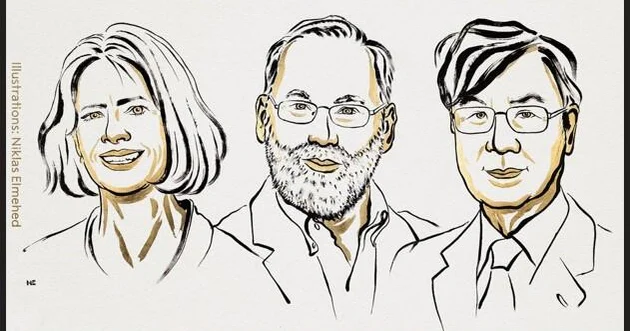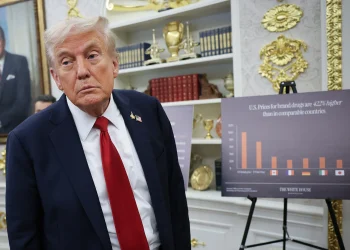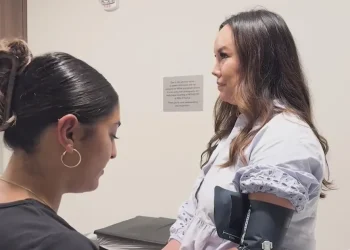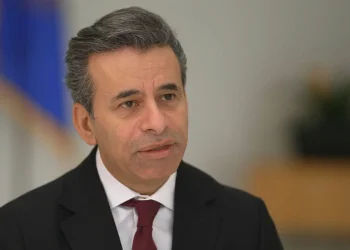Stockholm – Mary E. Brunkow, Fred Ramsdell and Dr. Shimon Sakaguchi won the Nobel Prize in Medicine on Monday for their discoveries regarding peripheral immune tolerance.
Brunkow, 64, is a senior program director at the Institute for Systems Biology in Seattle. Ramsdell, 64, is a scientific advisor for Sonoma Biotherapeutics in San Francisco. Sakaguchi, 74, is a distinguished professor at the Immunology Frontier Research Center at Osaka University in Japan.
Brunkow learned of her prize from an AP photographer who came to her house in the early hours of the morning.
She said she had ignored the Nobel committee’s previous appeal. “My phone rang and I saw a number from Sweden and I thought, ‘That’s just, it’s spam in a way.’ “”
“When I told Mary she won, she said, ‘Don’t be ridiculous,'” said her husband, Ross Colquhoun.
“It was a nice surprise,” Sakaguchi said at a news conference at Osaka University in western Japan. “I hope that research in the field will advance for more progress so that our results can be used in treatment, and I hope that we can contribute to this as well.”
The immune system has many overlapping systems to detect and fight against bacteria, viruses and other bad actors. Key immune warriors such as T cells are trained on how to spot bad actors. If some go wrong instead in a way that could trigger autoimmune diseases, they are thought to be eliminated in the thymus – a process called central tolerance.
Nobel winners have unraveled an additional way for the body to keep the system in check.
The Nobel committee said it began with Sakaguchi’s 1995 discovery of an unknown T cell subtype now known as regulatory T cells, or REGs. Then in 2001, Brunkow and Ramsdell discovered a culprit mutation in a gene called Foxp3, a gene that also plays a role in a rare human autoimmune disease.
The Nobel committee said that two years later, Sakaguchi linked the findings to show that the Foxp3 gene controls the development of these T-regs – which in turn act as a security guard to find and limit other forms of overreacting T cells.
Brunkow said she and Ramsdell worked together at a small biotechnology company and were studying why a particular strain of mice had an overactive immune system. They had to work with new techniques to find the mouse gene behind the problem – but quickly realized it could also be a major player in human health.
“From a DNA level, it was a really small alteration that caused this massive change in the functioning of the immune system.”
The work opened a new field of immunology, said Marie Wahren-Herlenius, professor of rheumatology at the Karolinska Institute. Researchers around the world are now working to use regulatory T cells to develop treatments for autoimmune diseases and cancer.
“Their findings were decisive for our understanding of how the immune system works and why we do not all develop serious autoimmune diseases,” said Olle Kämpe, chair of the Nobel committee.
The award is the first of the 2025 Nobel Prize announcements and was announced by a panel at the Karolinska Institute in Stockholm.
The Nobel announcements continue with the physics prize on Tuesday, chemistry on Wednesday and literature on Thursday. The Nobel Peace Prize will be announced on Friday and the Nobel Memorial Prize in Economics on October 13.
The awards ceremony will take place on December 10, the anniversary of the death of Alfred Nobel, who founded the awards. Nobel was a wealthy Swedish industrialist and the inventor of dynamite. He died in 1896.
The trio will share the prize money of 11 million Swedish kronor (nearly $1.2 million).









